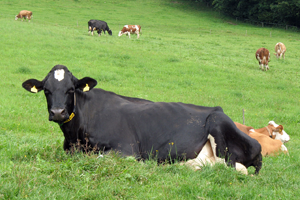 This post is inspired by a discussion with Betty Ann on the www.Teachers.net math chatboard. She writes:
This post is inspired by a discussion with Betty Ann on the www.Teachers.net math chatboard. She writes:
I’ve got a high school student doing a very basic geometry course. She’s having trouble with the concept of a counterexample. I’m writing a worksheet on counterexamples and would love to have some more simple conjectures for her to work with.
A counterexample is a special kind of example that disproves a statement. We start using these in Geometry because that’s the first course that really teaches proving things.
Counterexamples are an essential part of logic.
They don’t really need to be associated with math (or even philosophy) to be applicable. Which is the cool thing about them.
Suppose someone says, “I always get to school on time.” It only takes one day when he isn’t on time at school to negate this statement. That one day would be considered the counterexample.
We do this all the time and never use the fancy math term “counterexample.” So when we teach it, it’s helpful to tap into these everyday uses.
Counterexamples are everywhere.
Here are some statements for which students can come up with easy counterexamples.
In the house:
- Any four legged piece of furniture is a table.
- If something has a knob on it, it’s a faucet.
- Everything in the house with hands is a clock.
- If a living being has eyes, it’s a human.
In the grocery store:
- Everything that costs $2.99 is a gallon of milk.
- Everything that’s hot is fried chicken.
- If something is white, then it is mayonaise.
In the classroom:
- If it’s a book, it has words. (Make sure there are blank journal books around.)
- All books teach arithmetic.
- Anything on the wall is a whiteboard.
- If it’s full of pencils, then it’s a coffee mug.
You can make your own statements for counterexamples.
Choose a noun. Notice a feature about it. Then put it together using this MadLibs format:
- Everything that has <feature> is a <noun>.
- All <plural noun> have <feature>.
- If it <has this feature>, then it’s a <noun>.
You can also reverse them like this:
- Every <noun> has <feature>.
For instance:
- Every cow is brown.
- Every lightbulb is 60 watt.
- Every hammer has a wooden handle.
Which counterexamples or counterexample building method do you use?

This post may contain affiliate links. When you use them, you support us so we can continue to provide free content!







I love these! What a fun lesson for little kids, too.
Thanks, Dan!
I enjoyed creating them, too.
Really – I remember my Ma doing stuff like this with me when I was little. Creates so much giggling! I had totally forgotten about that, thanks!
WOW! THANKS, GREAT HELP!